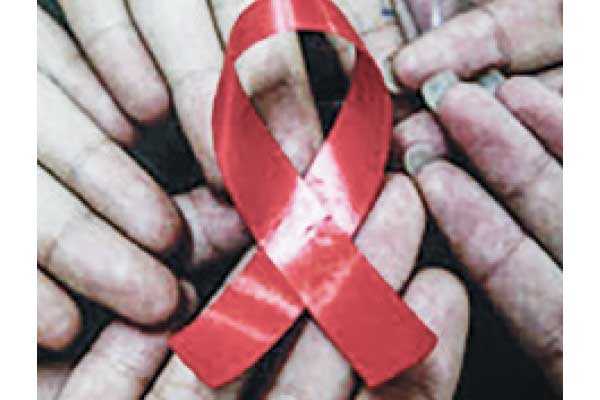Our journey to zero HIV deaths
As we commemorate World AIDS Day today (1 December), it is easy to forget how far Debswana has come since experiencing the alarming impact of HIV on its business just 20 years ago.
The World Health Organisation estimates that in 2015, around 36 million people, globally, were living with HIV. The Botswana AIDS Impact Survey (BAIS) 1V report estimates that in Botswana, which has a population of around 2.3 million people, approximately 18.5 percent people were infected in 2013. As one of the world’s most successful public-private partnerships, the decision by Debswana, in collaboration with De Beers and The Government of the Republic of Botswana, to launch a pioneering treatment programme moved beyond being just a business decision. It became a social imperative.In 1996, an increase in ill health after confirmed cases of HIV led to employees losing the ability to earn an income to support themselves and their loved ones, while workforce morale was justifiably low due to colleagues being infected, or affected, by the condition.
The business felt this directly through a loss of skills and productivity, with illness often leading to early retirements and, sadly, almost a third of employees dying. From the emotional effect it had on families and friends, to the broader economic ramifications, the impact of HIV/AIDS was deep, and felt far and wide. Debswana began exploring the provision of an HIV treatment, care and support programme for those affected. A saliva-based voluntary, and anonymous, survey was carried out in the same year to get an understanding of the scale of the issue.
The results were shocking, with around a third of employees from across the company’s operations testing HIV positive or being diagnosed with AIDS. Jump ahead to 2001 and the company had pioneered the innovative HIV Disease Management Programme, the first workplace-based initiative of its kind anywhere in the world. The overall objective, supported by a new HIV/AIDS policy, was to provide antiretroviral medicine, as well as palliative care, to infected and affected employees in a bid to reduce loss of life, prevent new infections and extend the lives of Debswana’s employees.
Early diagnosis and access to treatment, and ongoing support, were key in ensuring the programme’s success. Such that it was, the programme was soon extended to all De Beers business units. Today, the work carried out by De Beers and its businesses means that now less than one per cent of employees have lost their lives as a result of HIV/AIDS. However, even one death is one too many. More needs to be done to fight the rise, as well as the stigma, of HIV and AIDS. As a business, we are committed to the global ‘90 90 90’ strategy and, earlier this year, adopted a ‘test and treat’ policy.
This means we are aiming for 90 per cent of employees to be tested for HIV, 90 per cent of HIV positive employees to be enrolled on a disease management programme and for 90 per cent viral suppression. De Beers continues to offer free voluntary counselling and testing for its employees, contractors and their families, and provides free treatment, care and support to its employees and their families.Loss of life related to HIV dropped in 2014 to less than one per cent from around 30 per cent in 1996, and more than 85 per cent of our colleagues living with HIV are registered on the HIV Disease Management Programme and receive necessary treatment, care and support. Almost all of those on the programme have suppressed the virus and lead healthy and productive lives.
It is clear to see when I visit our operations that we have healthier, happier and more productive employees. Our absenteeism rate has also dropped by quite a considerable amount, as a result. The efforts to fight HIV and AIDS have also had a positive impact on our Tuberculosis (TB) interventions, with De Beers now having one of the lowest TB incidence rates (65 per 100,000 employees) across the entirety of southern Africa’s mining sector. But, we are not done yet. It is clear to us all that challenges remain and require our ongoing commitment and action.
Earlier this year, we lost two colleagues to HIV/AIDS-related illnesses. This is unacceptable. We continue to register new cases of HIV and our voluntary testing uptake this year is at 55 per cent, relative to the 90 per cent target. We still have work to do, but the challenge of achieving our goal is easily overshadowed by the strength of our resolve in getting it done.
We’ve learnt important lessons. Continual, leader-driven improvement efforts are key to ensuring that complacency doesn’t set in, and HIV targets are being incorporated across the business to ensure the issue is properly tracked and monitored. Partnerships remain the cornerstone of De Beers’ success, and so it is that only by working with our employees, local communities and producer country governments can we have any real chance of achieving what we’ve set out to do
We remember those we have lost to HIV and AIDS-related illnesses, but we also know that the fight isn’t over.
With campaigns underway in each of our businesses to encourage employees to get tested and know their status, ultimately we believe that zero HIV deaths, zero new infections and zero stigma is achievable. We may have a long way to go on our journey, but we’re determined, committed and won’t stop fighting this battle because, one day, we will arrive at a future free of HIV and AIDS.
Dr Tshepo Sedibe is a Senior Occupational Health Manager, De Beers






